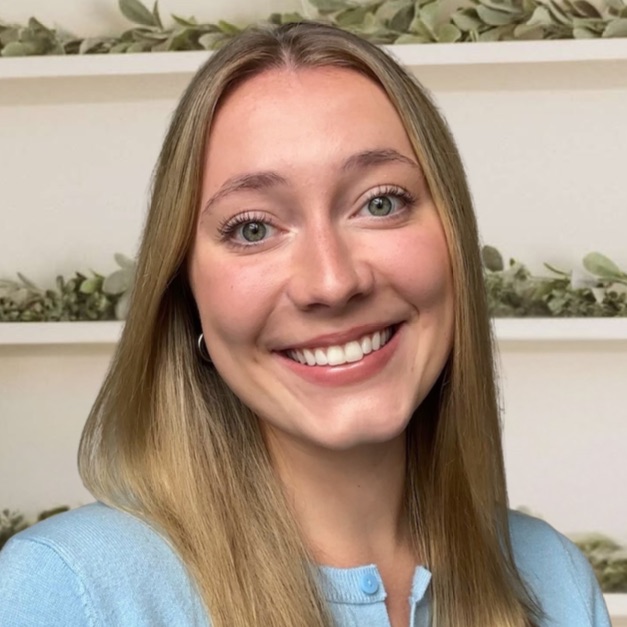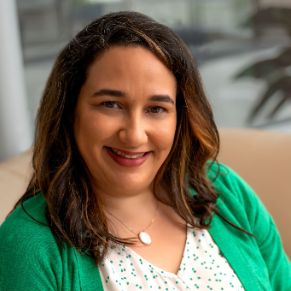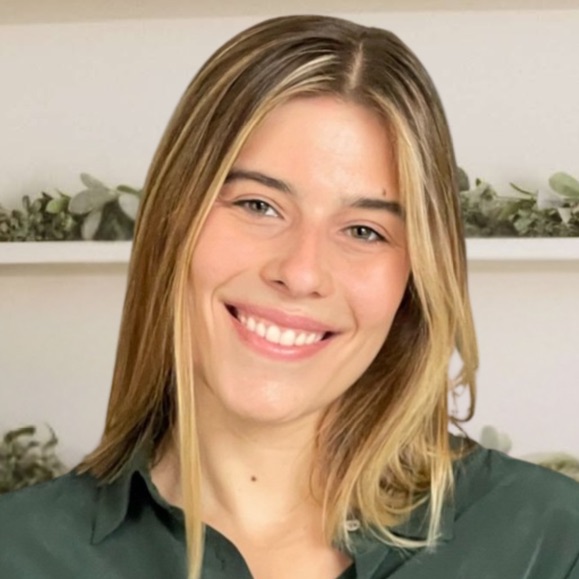Navigating Relationships Therapy Options in New York City
Relationship therapy in New York City is available in multiple formats to fit busy urban lives. In-person sessions across neighborhoods like the Upper East Side, Financial District, Williamsburg, and Astoria offer face-to-face connection, private offices, and convenient access near major subway lines and bus routes. Virtual teletherapy supports privacy and flexibility—ideal for roommates, hybrid work schedules, or long commutes across boroughs from the Bronx to Staten Island. Individual therapy helps you explore patterns and communication styles, while group therapy provides peer support and skills practice, including LGBTQ+-affirming groups in Chelsea or new-parent groups in Park Slope. MiResource’s directory makes it easy to compare Relationship providers by location, specialization, and approach so you can align care with your neighborhood, commute, and preferences.
Many New York City practices offer evening or weekend hours, bilingual clinicians, and sliding-scale options, making it simpler to match care to your budget and schedule. Couples can choose in-person sessions for deeper nonverbal cues or teletherapy for convenient check-ins between work in Midtown and home in Long Island City. Group formats can reduce costs and build community, while individual sessions allow focused, tailored goals. With MiResource, you can filter by therapeutic approach (e.g., EFT, Gottman,
CBT
), insurance, and availability, then map options near your subway line or workplace. Use MiResource as a trusted, easy-to-use tool to explore and compare Relationship therapy options across New York City and find the best fit fast.
Organizations that offer Supportive Services for Relationships in New York City
New Yorkers can start with
NYC Well
for 24/7 crisis counseling, peer support, and referrals by phone, text, or chat, serving all five boroughs from Inwood to Staten Island’s St. George.
NAMI-NYC
runs free education classes and support groups for individuals, partners, and families—both virtual and in-person at its Midtown office near Bryant Park.
Safe Horizon
offers domestic violence and relationship abuse hotlines, shelter placement, counseling, and court advocacy, with walk-in help near Downtown Brooklyn’s Borough Hall and in Lower Manhattan. The NYC Family Justice Centers, operated by the Mayor’s Office to End Domestic and Gender-Based Violence, provide confidential counseling, legal services, and safety planning in borough hubs like Kew Gardens, Long Island City, and the Bronx’s Grand Concourse.
For relationship-focused counseling and education, the
Ackerman
Institute for the Family in the Flatiron/Gramercy area offers sliding-scale couples and family therapy, workshops, and training. Community resource navigators at
211 NYC
can connect you to local support groups, parenting programs, housing help, and low-cost clinics near landmarks like Harlem’s 125th Street and Times Square. These organizations complement hospital- and clinic-based services across neighborhoods from Sunset Park to the Upper East Side, helping with crisis care, ongoing support, and referrals. Use MiResource to find licensed Relationship therapists in New York City who match your needs, location, and budget.
Emergency Care Services for Relationships in New York City
If you or someone else is in immediate danger, call 911 or go to the nearest hospital emergency department; for urgent but non-life-threatening needs, use a nearby urgent care center. For 24/7 crisis support in NYC, contact NYC Well at 1-888-NYC-WELL (1-888-692-9355), text WELL to 65173, or chat at
https://nycwell.cityofnewyork.us
; they can dispatch Mobile Crisis Teams when appropriate. For relationship or domestic violence crises, call NYC’s 24/7 hotline at 1-800-621-HOPE (4673) or visit
https://www.nyc.gov/
; nationally, call the National Domestic Violence
Hotline
at 1-800-799-SAFE (7233) or text START to 88788. You can also reach the Suicide & Crisis Lifeline at
988
for immediate emotional support and linkage to local resources.
The Essentials of Relationships
Relationships
is the ongoing connection between people, shaped by emotions, thoughts, behaviors, and shared expectations; it includes family, friendships, romantic partnerships, and workplace ties. A healthy Relationships features mutual influence, trust, communication, and boundaries, and it evolves over time as people respond to each other’s needs and contexts. Clinically, relationships are understood as patterns of interaction that can promote well-being or contribute to distress depending on their quality (American Psychological Association Dictionary of Psychology; National Institute of Mental Health). Knowing what makes Relationships supportive helps people recognize strengths and address challenges before they grow.
Key characteristics of a strong Relationship include clear communication, respect, reliability, and balanced give-and-take, along with skills for navigating conflict and repair. Because social connection is a core protective factor for mental health, Relationships quality can affect stress, mood, anxiety, and recovery from hardship (National Institute of Mental Health; World Health Organization). In a fast-moving city like New York City—where schedules are packed and space is shared—being intentional about your Relationships can reduce burnout and increase resilience. Understanding what you need, and seeking support when patterns feel stuck, is a compassionate step toward better mental health.
Recognizing the Signs and Symptoms of Relationships Issues
Noticing shifts in how you feel, communicate, and connect can be the first step toward understanding your Relationships health. The list below highlights the most common signs and symptoms of Relationships Issues. If these feel familiar in your New York City routine, early recognition can help you get timely support.
- Frequent arguments or miscommunications where small issues quickly escalate and never fully get resolved
- Feeling constantly on edge—worry, tension, or irritability tied to your Relationship, even during everyday NYC stressors like commuting or work
- Pulling away from friends, family, or activities you once enjoyed together, leading to more isolation in a city full of people
- Walking on eggshells or changing your behavior to avoid a partner’s reactions, criticism, or anger
- Signs of control or monitoring (checking your phone, limiting money, tracking your whereabouts), which can point to unhealthy power dynamics
- Physical stress signals—trouble sleeping, headaches, or appetite changes—linked to ongoing Relationship strain
- Feeling stuck, unsafe, or unsure how to move forward, and sensing it might be time to talk with a New York City professional for support
Exploring the Underlying Causes of Relationships Issues
Many people in New York City experience Relationships issues, and it rarely stems from a single cause. Instead, Relationships often develops through a mix of influences that interact over time. Understanding these interconnected factors can reduce stigma and promote empathy by showing that no one is at fault. Below is a clear breakdown of common contributors.
- Biological: Family history or genetics; brain chemistry (the balance of mood-related brain messengers); medical or hormonal changes.
- Psychological: Past
trauma
or loss; attachment patterns learned in early relationships; unhelpful thinking habits or low coping skills.
- Environmental: Chronic stress from work or school; financial strain and high cost of living in NYC; social isolation, crowding, or unstable housing.
The Impact of Relationships on Daily Life
Relationships can shape so many parts of daily life, especially in a fast-moving place like New York City where time, space, and energy are often stretched. When Relationships feel supportive, it can be a source of strength; when it’s strained, the ripple effects can show up from the morning commute to the moments before bed. Noticing how Relationship touches your routines, mood, and goals can build empathy for yourself and others—and remind you it’s okay to seek support.
- Work or school performance (focus, productivity, motivation)
- Relationships with family, friends, and partners (communication, trust, conflict)
- Emotional well-being (stress, mood, resilience)
- Physical health and energy (
sleep
, appetite, tension)
- Daily routines and self-care (exercise, meals, downtime)
- Finances and household responsibilities (budgeting, chores, planning)
- Social life and community in NYC (making plans, attending events, feeling connected)
Evidence-Based Treatments for Relationships Issues
Evidence-based treatments can make a real difference for Relationships, helping you strengthen connection, reduce conflict, and improve quality of life. Proven approaches focus on practical skills and patterns that research shows work. If you’re in New York City, there are many trained professionals and programs nearby to support you. You deserve care that is effective, respectful, and tailored to your goals.
- Cognitive Behavioral Therapy (CBT) for couples: Teaches partners to spot unhelpful thought patterns and practice new communication and problem-solving skills.
- Emotionally Focused Therapy (EFT): A structured approach that helps partners recognize triggers, share deeper emotions safely, and build secure attachment.
- The Gottman Method: Uses research-based tools like soft start-up, repair attempts, and building friendship to reduce conflict and increase intimacy.
- Individual therapy: Addresses personal stress, trauma,
anxiety
, or
depression
that may be affecting Relationships, with skills you can bring back to the partnership.
- Medication (when appropriate): For issues like depression or anxiety that impact Relationships; prescribed and monitored by a medical professional alongside therapy.
- Support groups and workshops: Peer-led groups or short courses in NYC that offer communication practice, conflict de-escalation, and mutual encouragement.
Things People Ask About Relationships Issues
- What are some common myths about Relationships that aren’t true?
Myth: If a Relationship has conflict, it’s failing; truth: conflict is normal, and repairing disagreements with respect can make a Relationship stronger. Myth: Healthy Relationships are always 50/50; truth: the balance naturally shifts over time, and fairness matters more than perfect equality—especially with New York City’s long commutes, shift work, and stress. Myth: A good partner should “just know” what you need; truth: no one reads minds, and clear, kind communication is the best way to care for your Relationship. Seeking counseling or support in NYC is a sign of commitment, not failure.
- How do I talk to friends or family about my Relationships Issues without feeling judged?
Pick a calm, interruption-free moment—like a quiet walk in Central Park or a coffee in a low-key NYC café—to bring up your Relationships, and lead with “I” statements about what you need. Set clear boundaries up front (e.g., “I’m looking for listening, not advice,” or “Please keep this private”) so you can share about your Relationships without feeling judged. If tough topics arise, agree on a pause word and revisit later, and remember it’s okay to end the chat if it stops feeling safe. Share helpful resources—articles, podcasts, or local NYC options like NYC Well (888-692-9355), community workshops, or counseling directories—so friends and family can support you in informed, respectful ways.
- Can Relationships get better on its own without professional help?
Yes, Relationships can sometimes improve on its own as partners communicate more, make small compromises, and allow tensions to cool. But entrenched patterns—especially under New York City stressors like long work hours, tight spaces, and fast-paced routines—often persist without new skills or guidance. Professional support offers structure, evidence-based tools, and a neutral perspective that accelerates change and makes gains more durable. If you’re in NYC, accessing local couples therapists or telehealth can help your Relationships move from short-term relief to lasting improvement.
- What should I expect during my first Relationships therapy session?
In your first Relationship therapy session, your therapist will warmly introduce themselves, explain confidentiality, and invite you both to share what brings you in. You’ll discuss your concerns at a comfortable pace, review relevant background (communication patterns, stressors, and NYC lifestyle factors like work schedules or commute), and identify initial goals together. Expect a few clarifying questions to understand your relationship history and what change would look like for you, whether you’re meeting in-person in New York City or via secure telehealth. You’ll leave with a clearer plan for next steps and reassurance that progress can unfold one manageable step at a time.













